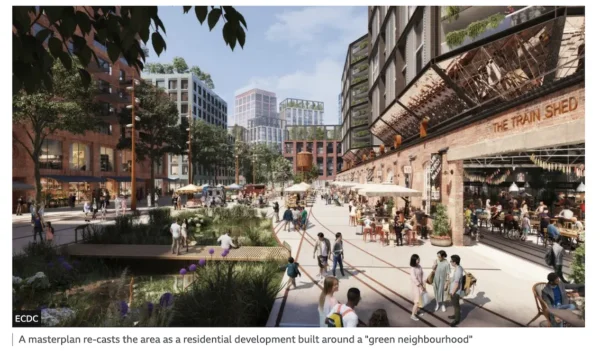Autumn Budget unfavourable to PCL
Labour’s Autumn budget increased Stamp Duty on additional residential property by a further 2%.
This may disproportionately affect Prime Central London’s market where more buyers own additional property.
As things currently stand, SDLT on a £5m purchase for a UK tax-resident who already owns another property could be £761,250 – an effective tax rate of 15.2% on the purchase. As with previous Stamp Duty increases, additional purchase costs will put downward pressure on house prices in London’s most expensive neighbourhoods.
We expect the policy to have less impact in areas with more domestic buyers less likely to own a second property such as Islington and Chiswick.

Mind the Gap?
Savills recently predicted London will underperform other UK property markets. Over the next five years, they foresee the capital having the lowest regional growth at 17.1% with the North West faring the best at 29.4%.
Savills commented:
“Beyond 2025, affordability will have the biggest influence in every region. Despite falling mortgage rates, buyers in London and the South East will still need to borrow more relative to their income, and accumulate a bigger deposit to buy, constraining house price growth.”
Of course, stretched affordability is nothing new in London but it has become more pronounced now ultra low interest rates are a thing of the past.

When (and when not to) renegotiate?
Uncommonly for us, we have recently renegotiated a couple of purchase prices before exchange. In one instance it was due to a clear condition of our offer not being fulfilled. The other was due to an upcoming bill for leaseholders not covered by the service charge which wasn’t disclosed during Best and Final offers.
It is vital any renegotiations are done in good faith based on significant new material information coming to light. If the seller thinks you are being opportunistic, they may not wish to sell to you at any price.
Leasehold Reform – Uncertainty Prevails
The passing of the Leasehold and Freehold Reform Act 2024 seemed good news for leaseholders. New measures are set to include ending marriage value (a premium charged on lease extensions under 80 years) and increasing standard lease extension lengths. However the timings and detail remain unclear. The Leasehold Advisory Service’s co-ceo recently said that leasehold reform is “years, not months away”.
Law firm Farrer wrote an excellent blog outlining the complexity of fully implementing the bill and uncertain final outcome. Much of the bill requires secondary legislation which may be subject to legal challenges from freeholders.
For instance, on marriage value reforms, Farrer commented:
“It is anticipated that any consultation on the valuation methodology will be contentious. Large private landlords (such as the key London estates) and institutional landlords (such as pension and investment funds) are facing a substantial decrease in the value of their assets and ongoing income. These landlords will likely seek to apply significant pressure on the new government to ensure the impact of abolition on marriage value is ameliorated by other valuation changes.”
For buyers of leasehold property (anyone buying a flat in London) it is crucial they rely on legal advice and don’t assume any proposed changes will be enacted smoothly.
Earl’s Court’s Grand Designs

Source: BBC News / ECDC
Ambitious plans have been submitted to transform the former Earl’s Court exhibition centre into a £10bn development, creating a new neighbourhood of 4,500 new homes with generous public realm.
The plans are currently being rejected because there is not enough affordable housing while some locals are complaining about the scale of development despite its central location. In truth, much of Earl’s Court’s is very tired and it is surrounded by better areas. Hopefully this ambitious proposal won’t be a missed opportunity and is needed as much as the nearby redevelopment of Kensington Olympia.
